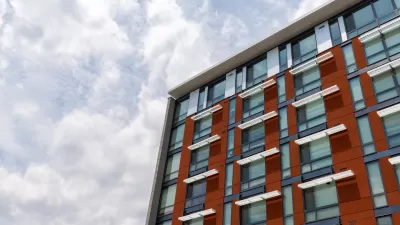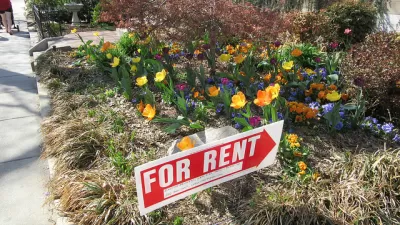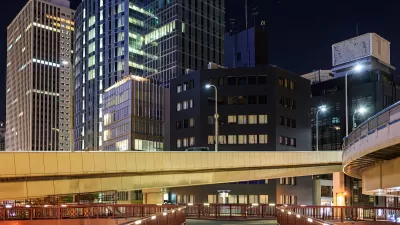A relative lack of conversions from office to residential—the adaptive reuse model driving the housing market in many urban areas—makes the Washington, D.C. region a perfect place to study the factors that make or break an adaptive reuse proposal.

Cities around the country have spent recent years converting old office buildings into residential uses. The wave of adaptive reuse projects in some local cases could be credited with creating entirely new residential neighborhoods.
"Yet despite considerable media coverage, office conversion has been comparatively limited in greater Washington," according to Payton Chung.
Chung cites research from a 2016 report by Jones Lang LaSalle that counted only 26 conversion projects in Washington, D.C.; Montgomery County, Fairfax County, and Arlington County combined. The whole D.C. region has completed "scarcely more" office conversions than the city of Baltimore alone.
According to Chung, the reasons for D.C.'s resistance to office conversions fit into two broad categories: a relatively healthier office market and a lack of specific incentives adaptive reuse. That could be about to change, however, as "Fairfax County and Montgomery County have recently commissioned studies to investigate office building adaptive reuse." In studying the issue, a couple of useful themes have emerged that can help determine the feasibility of adaptive reuse in other contexts, namely, location, price, and layout.
Chung's article goes into a lot more detail on each of those three considerations.
FULL STORY: Not every obsolete office building is cut out to become apartments

Study: Maui’s Plan to Convert Vacation Rentals to Long-Term Housing Could Cause Nearly $1 Billion Economic Loss
The plan would reduce visitor accommodation by 25,% resulting in 1,900 jobs lost.

North Texas Transit Leaders Tout Benefits of TOD for Growing Region
At a summit focused on transit-oriented development, policymakers discussed how North Texas’ expanded light rail system can serve as a tool for economic growth.

Using Old Oil and Gas Wells for Green Energy Storage
Penn State researchers have found that repurposing abandoned oil and gas wells for geothermal-assisted compressed-air energy storage can boost efficiency, reduce environmental risks, and support clean energy and job transitions.

Santa Barbara Could Build Housing on County Land
County supervisors moved forward a proposal to build workforce housing on two county-owned parcels.

San Mateo Formally Opposes Freeway Project
The city council will send a letter to Caltrans urging the agency to reconsider a plan to expand the 101 through the city of San Mateo.

A Bronx Community Fights to Have its Voice Heard
After organizing and giving input for decades, the community around the Kingsbridge Armory might actually see it redeveloped — and they want to continue to have a say in how it goes.
Urban Design for Planners 1: Software Tools
This six-course series explores essential urban design concepts using open source software and equips planners with the tools they need to participate fully in the urban design process.
Planning for Universal Design
Learn the tools for implementing Universal Design in planning regulations.
Ascent Environmental
Borough of Carlisle
Institute for Housing and Urban Development Studies (IHS)
City of Grandview
Harvard GSD Executive Education
Toledo-Lucas County Plan Commissions
Salt Lake City
NYU Wagner Graduate School of Public Service





























